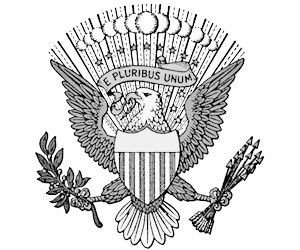|
|
|
|
|
The list and short descriptions of the most notable and famous Harlem Renaissance poets featured in the list include details of Langston Hughes, Claude McKay, Countee Cullen, James Weldon Johnson, Georgia Douglas Johnson, Sterling Brown, Gwendolyn Brooks, Arna Wendell Bontemps, Marcus Garvey, Angelina Weld Grimké and Gwendolyn B. Bennett. Langston Hughes: Langston Hughes (1902 - 1967) was the most famous of all the Harlem Renaissance Poets. His emotional and expressive writing style reflected the culture and experiences of African Americans. The most famous Langston Hughes poems are 'The negro speaks of rivers, 'The Weary Blues' and 'I too'. Claude McKay: Claude McKay (1890 - 1948) wrote poems that reflected the oppression and plight of his people. The most famous Claude McKay poems are 'If we must Die' and 'The Lynching'. Countee Cullen: Countee Cullen (1903 - 1946) was married the daughter of the prominent civil rights activist W.E.B. Du Bois and his poems incorporated the experiences and culture of black people. Countee Cullen wrote "The Black Christ and Other Poems". James Weldon Johnson: James Weldon Johnson (1871 - 1938) was a prolific writer. Johnson's most famous poems were "God's Trombones" and "Lift Ev’ry Voice and Sing" which has been referred to as the Black national anthem. Georgia Douglas Johnson: Georgia Douglas Johnson (1880 - 1966), a famous female poet, published full volumes of poetry, including "The Heart of a Woman, and Other Poems" and "Bronze". Sterling Brown: Sterling Brown (1909 - 1967) was influenced by jazz, the blues, traditional spirituals and old southern work songs. His poems included Cabaret, Ma Rainey and Memphis Blues Gwendolyn Brooks: Gwendolyn Brooks (1917 – 2000) was a notable poet whose characters reflected the lives of the poor of the inner city. In her later career she won the Pulitzer Prize for Poetry in 1950 and an American Academy of Arts and Letters award. Arna Wendell Bontemps: Arna Wendell Bontemps (1904 - 1973) taught at the Harlem Academy and began to publish poetry. His poems included Reconnaissance, God Give to Men and A Black Man Talks of Reaping. He won the Opportunity's Alexander Pushkin prize for Golgatha is a Mountain. Marcus Garvey: Marcus Garvey (1887 - 1940) is best remembered as a Civil Rights activist but was also a poet. His poems included Get Up And Go! The Black Mother and The Rise Of The Negro. Angelina Weld Grimké: Angelina Weld Grimké (1887 - 1940) was an African-American journalist, playwright and poet. Her poems included Trees, A Winter Twilight and The Eyes of My Regret Gwendolyn B. Bennett: Gwendolyn B. Bennett (1902 – 1981) was an African-American poet and writer who contributed to the magazine, Opportunity. Her poems included Heritage, Nocturne and Purgation Langston Hughes: Langston Hughes (1902 - 1967) was the most famous of all the Harlem Renaissance Poets. His emotional and expressive writing style reflected the culture and experiences of African Americans. The most famous Langston Hughes poems are 'The negro speaks of rivers, 'The Weary Blues' and 'I too'. Claude McKay: Claude McKay (1890 - 1948) wrote poems that reflected the oppression and plight of his people. The most famous Claude McKay poems are 'If we must Die' and 'The Lynching'. Countee Cullen: Countee Cullen (1903 - 1946) was married the daughter of the prominent civil rights activist W.E.B. Du Bois and his poems incorporated the experiences and culture of black people. Countee Cullen wrote "The Black Christ and Other Poems". James Weldon Johnson: James Weldon Johnson (1871 - 1938) was a prolific writer. Johnson's most famous poems were "God's Trombones" and "Lift Ev’ry Voice and Sing" which has been referred to as the Black national anthem. Georgia Douglas Johnson: Georgia Douglas Johnson (1880 - 1966), a famous female poet, published full volumes of poetry, including "The Heart of a Woman, and Other Poems" and "Bronze". Sterling Brown: Sterling Brown (1909 - 1967) was influenced by jazz, the blues, traditional spirituals and old southern work songs. His poems included Cabaret, Ma Rainey and Memphis Blues Gwendolyn Brooks: Gwendolyn Brooks (1917 – 2000) was a notable poet whose characters reflected the lives of the poor of the inner city. In her later career she won the Pulitzer Prize for Poetry in 1950 and an American Academy of Arts and Letters award. Arna Wendell Bontemps: Arna Wendell Bontemps (1904 - 1973) taught at the Harlem Academy and began to publish poetry. His poems included Reconnaissance, God Give to Men and A Black Man Talks of Reaping. He won the Opportunity's Alexander Pushkin prize for Golgatha is a Mountain. Marcus Garvey: Marcus Garvey (1887 - 1940) is best remembered as a Civil Rights activist but was also a poet. His poems included Get Up And Go! The Black Mother and The Rise Of The Negro. Angelina Weld Grimké: Angelina Weld Grimké (1887 - 1940) was an African-American journalist, playwright and poet. Her poems included Trees, A Winter Twilight and The Eyes of My Regret Gwendolyn B. Bennett: Gwendolyn B. Bennett (1902 – 1981) was an African-American poet and writer who contributed to the magazine, Opportunity. Her poems included Heritage, Nocturne and Purgation |
| US American History |
| 1913-1928: WW1 & Prohibition |
|
|
|
|
|
First Published2016-04-19 | |||
|
Updated 2018-01-01 |
Publisher
Siteseen Limited
| ||
|
|

